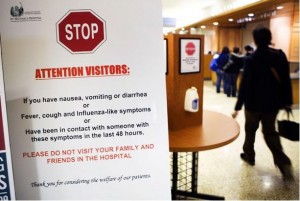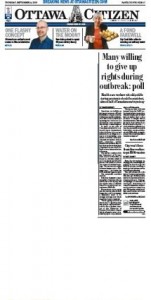Joint Centre for Bioethics, Toronto
23 Sep 2009
 The anticipated onset of a second wave of the H1N1 influenza pandemic could present a host of thorny medical ethics issues best considered well in advance, according to the University of Toronto Joint Centre for Bioethics, which today released nine papers for public discussion.
The anticipated onset of a second wave of the H1N1 influenza pandemic could present a host of thorny medical ethics issues best considered well in advance, according to the University of Toronto Joint Centre for Bioethics, which today released nine papers for public discussion.
Topics include duty of health care workers to work during a serious flu pandemic; government restrictions on individual freedoms and privacy and their responsibilities administering vaccination programs; how to allocate limited medical resources; and the obligation of rich countries to share such resources with those less fortunate.
“While we hope there will not be a major second wave of the H1N1 flu, there is limited cause for optimism and we could well see the pandemic’s full onset late this year or early next when the traditional flu season begins,” says JCB Director Ross Upshur.
“Now is the time to think through the serious ethical challenges societies may confront, not in the midst of crisis with line-ups at hospital doors. These issues and concerns, though drawn largely from a Canadian point of view, have relevance to countries everywhere.”
JCB’s Canadian Program of Research on Ethics in a Pandemic (CanPREP) prepared the papers with the benefit of both academic and public opinion research, obtaining the views of 500 Canadians through a national telephone survey and nearly 100 more via a series of town hall meetings nationwide.
Full news release text, click here
Coverage summary, click here
Example coverage, by the CanWest News Service, click here
